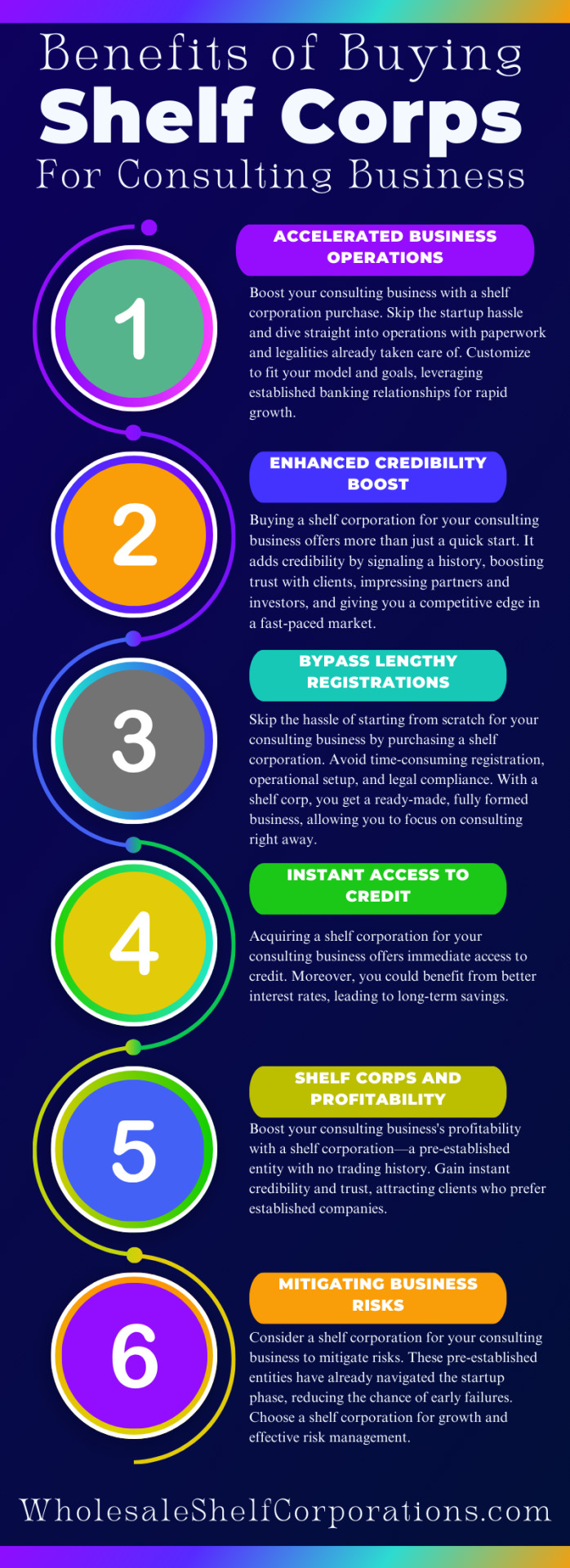#Consulting Business
Explore tagged Tumblr posts
Text
#image consultant#image consulting#personal branding#image consultants#image consultant sydney#consulting business#image consulting business
0 notes
Text
🌟 Achieve Financial Excellence with FinTheme! 🌟

📊 Take your finance business online effortlessly with FinTheme! 🚀
Key Features:
💰 Seamless One-Click Demo Import 💰 Built-in SEO Optimization for better rankings 💰 Lightning-fast Speed Optimization 💰 Stunning pre-designed templates for finance & consulting businesses! 💰 Lifetime Free Updates
📱 Perfect for: Financial Advisors | Consulting Firms | Accountants 💼
Read More: ► 👉 https://1.envato.market/k2eWd
We provide high-quality SEO-friendly website themes and templates with 100% responsive design.
Explore it: ► 👉 https://zozothemes.com
1 note
·
View note
Text
Crafting an Effective Consulting Business Plan for Entrepreneurs
For any entrepreneur aiming to thrive in the currently overcrowded coaching and consulting market, the existence of a clear consulting business plan becomes essential. This strategic document is a tool that enables one to identify how to start a business and run it successfully.
Even if you are a novice or have decades of entrepreneurial successes, a well-structured business plan helps one focus on their objectives and plans and eventually achieve their vision.

Understanding a Consulting Business Plan
A consulting business plan is a comprehensive document that outlines your business goals, strategies, and the steps you will take to achieve success. It serves as a foundational tool that not only helps you define your business but also attracts potential investors and clients. A well-structured plan provides clarity on your business model, services offered, target market, and marketing strategies, ensuring you stay focused on your objectives.
The consulting business landscape is diverse, encompassing various niches, from life coaching to business consulting. Each area requires a tailored approach to address the specific needs of clients. By developing a clear business plan, you can adapt your services to meet these demands effectively.
Key Elements of a Consulting Business Plan
Executive Summary
The executive summary is the first section of your consulting business plan and offers a concise overview of your business. It should highlight your vision, mission, and objectives, providing a snapshot of what your consulting firm aims to achieve. This section sets the tone for the rest of the plan, so it should be compelling and clear.
Business Description
In this section, describe your coaching and consulting business model in detail. Explain the services you offer, such as one-on-one coaching, group sessions, or workshops. Discuss your unique value proposition and how it differentiates you from competitors. This is also the place to outline your target audience—whether you’re focusing on new entrepreneurs or seasoned professionals looking for advanced strategies.
Market Analysis
Conducting thorough market analysis is crucial to understanding the landscape in which your consulting business will operate. This includes researching industry trends, identifying your competitors, and analyzing their strengths and weaknesses. Understanding your market allows you to position your services effectively and meet the specific needs of your target audience.
Marketing Strategy
A robust marketing strategy is essential for promoting your consulting services. Key elements of a marketing plan tailored for consulting may include:
Content Marketing: Share valuable insights and resources through blogs, webinars, or newsletters to establish authority in your field.
Social Media Marketing: Use platforms like LinkedIn, Facebook, and Instagram to connect with potential clients and showcase success stories.
Networking: Attend industry events, workshops, and seminars to build relationships and attract clients.
Organizational Structure
Outline the organizational structure of your consulting business. Include information about your team, if applicable, and define roles and responsibilities. This clarity helps in understanding how your business operates and can improve efficiency. If you are a solo entrepreneur, describe your workflow and how you manage different aspects of your business.
Financial Projections
Financial planning is crucial for the sustainability of your consulting business. Include detailed financial projections, such as expected revenue, expenses, and profitability. This section should also cover pricing strategies for your services and how you plan to achieve your financial goals. A solid financial plan will instill confidence in potential investors and clients.

Types of Entrepreneurs and Their Needs
Although there are several types of entrepreneurs in diverse markets, mainly the division of entrepreneurs is of two types:
Emerging Entrepreneurs
New business owners often face certain challenges, such as a lack of resources and experience. Such individuals may find it helpful to have a coach who would give them personalized attention and help them work on their business. Catering your services to such individuals can help you stand out in the market.
Experienced Entrepreneurs
Experienced entrepreneurs can improve their current businesses with more sophisticated strategies. They may require assistance in, for instance, how to expand the operations of the business, how to enhance business efficiency, or exploring another market. This helps you to know the specific requirements of this group, enabling you to give appropriate advice and support, which makes your consulting effective and up-to-date.
Conclusion
A comprehensive business plan can benefit a beginner or an experienced entrepreneur. It states the business objectives and strategies more clearly and prepares one for the challenges in the consulting business. While developing your plan, do not forget to underscore your differentiating value proposition and the needs that your services serve for your clients.
If you're ready to take your business to the next level, consider exploring personalized one-on-one coaching from The Lonely Entrepreneur. With our two most effective solutions, we help transform businesses into brands. Sign up today to start your journey!
0 notes
Text
Launching a Consulting Business: A Step-by-Step Guide

Starting a consulting business can be an exciting and rewarding endeavor. Whether you're looking to leverage your expertise, achieve financial independence, or make a significant impact in your field, consulting offers a unique opportunity to turn your skills and knowledge into a thriving business. However, launching a successful consulting business requires careful planning, strategic decision-making, and a thorough understanding of the market. This step-by-step guide will walk you through the essential steps to start your consulting business, from identifying your niche and building your brand to acquiring clients and scaling your operations. By following these steps, you can set a solid foundation for your consulting business and position yourself for long-term success.
Step 1: Identify Your Niche
The first step in launching a consulting business is identifying your niche. This involves determining the specific area of expertise you will focus on and the types of clients you want to serve. Your niche should align with your skills, experience, and interests, as well as market demand. Consider what problems you can solve, what value you can offer, and who your ideal clients are.
Conduct market research to understand the needs and challenges of your target audience. Look at industry trends, competitor offerings, and potential gaps in the market. This research will help you refine your niche and develop a unique value proposition that sets you apart from other consultants. By focusing on a specific niche, you can position yourself as an expert and attract clients who need your specialized knowledge.
Step 2: Develop a Business Plan
Once you have identified your niche, the next step is to develop a comprehensive business plan. A business plan outlines your business goals, strategies, and the steps you will take to achieve them. It serves as a roadmap for your consulting business and helps you stay focused and organized.
Your business plan should include:
Executive Summary: A brief overview of your business, including your mission statement, goals, and services.
Market Analysis: An analysis of your target market, including market size, trends, and competitive landscape.
Services and Pricing: A detailed description of the consulting services you will offer and your pricing strategy.
Marketing and Sales Strategy: A plan for how you will promote your services and acquire clients.
Operations Plan: An outline of your business operations, including workflows, tools, and processes.
Financial Plan: A financial forecast, including projected revenue, expenses, and profitability.
Having a well-thought-out business plan will not only guide your business decisions but also help you secure funding or partnerships if needed.
Step 3: Build Your Brand
Building a strong brand is essential for attracting clients and establishing credibility in the consulting industry. Your brand encompasses your business name, logo, website, marketing materials, and overall image. It should reflect your expertise, values, and the unique value you offer to clients.
Start by choosing a business name that is memorable, professional, and relevant to your niche. Design a logo that represents your brand identity and use it consistently across all your marketing materials. Create a professional website that showcases your services, client testimonials, and case studies. Your website should be easy to navigate, visually appealing, and optimized for search engines.
In addition to your online presence, develop a consistent brand voice and messaging that communicates your value proposition clearly and compellingly. Use this messaging in your marketing materials, social media posts, and client communications to build a cohesive and recognizable brand.
Step 4: Set Up Your Business Structure
Choosing the right business structure is crucial for the legal and financial aspects of your consulting business. Common business structures for consulting businesses include sole proprietorship, partnership, limited liability company (LLC), and corporation. Each structure has its advantages and disadvantages in terms of liability, taxes, and administrative requirements.
A sole proprietorship is the simplest and least expensive option, but it does not offer liability protection. An LLC provides limited liability protection and tax flexibility, making it a popular choice for consultants. A corporation offers more liability protection and potential tax benefits but involves more complex administrative requirements.
Consult with a legal or financial advisor to determine the best business structure for your consulting business. Once you have chosen your structure, register your business with the appropriate state and local authorities, obtain any necessary licenses or permits, and set up a business bank account to keep your finances separate.
Step 5: Develop Your Services and Pricing
Clearly defining your services and pricing strategy is essential for attracting clients and generating revenue. Based on your niche and market research, develop a list of consulting services you will offer. These could include strategic planning, process improvement, market analysis, project management, or other specialized services relevant to your expertise.
When setting your pricing, consider factors such as your level of expertise, the value you provide, and the rates charged by competitors. You can choose to charge by the hour, project, or retainer, depending on what makes the most sense for your business and clients. Be transparent about your pricing and communicate the value clients will receive from your services.
Offering different service packages can also help attract a broader range of clients. For example, you could offer a basic package for smaller clients with limited budgets and a premium package for larger clients with more complex needs. This flexibility can make your services accessible to a wider audience and increase your revenue potential.
Step 6: Market Your Business
Marketing is crucial for attracting clients and growing your consulting business. Develop a marketing strategy that includes a mix of online and offline tactics to reach your target audience. Here are some effective marketing strategies for consulting businesses:
Content Marketing: Create valuable content, such as blog posts, whitepapers, and case studies, that showcases your expertise and provides value to your target audience. Share this content on your website, social media, and email newsletters to attract and engage potential clients.
Social Media Marketing: Use social media platforms like LinkedIn, Twitter, and Facebook to connect with your target audience, share industry insights, and promote your services. Engage with your followers by responding to comments, participating in discussions, and sharing relevant content.
Networking: Attend industry events, conferences, and networking meetups to connect with potential clients and other professionals in your field. Building relationships and establishing a strong professional network can lead to referrals and new business opportunities.
Email Marketing: Build an email list of potential clients and send regular newsletters with valuable content, updates on your services, and special offers. Email marketing can help you stay top-of-mind with your audience and nurture leads over time.
Search Engine Optimization (SEO): Optimize your website and content for search engines to increase your visibility and attract organic traffic. Use relevant keywords, create high-quality content, and build backlinks to improve your search engine rankings.
Step 7: Acquire Clients
Acquiring clients is one of the most critical steps in launching a consulting business. Start by leveraging your existing network to spread the word about your services. Reach out to former colleagues, friends, and acquaintances who might need your expertise or can refer you to others. Offer free initial consultations to showcase your value and build trust with potential clients.
Consider joining professional associations and organizations related to your niche to connect with potential clients and stay updated on industry trends. Participating in online forums and communities where your target audience hangs out can also help you generate leads and build relationships.
Referral programs can be an effective way to acquire new clients. Offer incentives, such as discounts or bonuses, to clients who refer new business to you. Providing exceptional service and delivering outstanding results can also lead to positive word-of-mouth and repeat business.
Step 8: Deliver Exceptional Service
Delivering exceptional service is crucial for building a successful consulting business. Focus on understanding your clients' needs, providing tailored solutions, and exceeding their expectations. Communicate clearly and regularly with your clients to keep them informed of your progress and any challenges that arise.
Collect feedback from your clients to understand what you’re doing well and where you can improve. Use this feedback to refine your services and enhance the client experience. Satisfied clients are more likely to refer you to others and provide positive testimonials that can attract new business.
Step 9: Scale Your Business
Once you have established a solid foundation, focus on scaling your consulting business to increase your impact and revenue. Consider hiring additional consultants or support staff to help manage your workload and expand your service offerings. Invest in professional development to stay updated on industry trends and continuously improve your skills.
Explore opportunities to collaborate with other consultants or businesses to offer complementary services and reach a broader audience. Diversifying your services and targeting new markets can also help you scale your business and achieve long-term growth.
In Conclusion
Launching a consulting business involves careful planning, strategic decision-making, and a commitment to delivering exceptional value to your clients. By following this step-by-step guide, you can set a solid foundation for your consulting business and position yourself for long-term success. From identifying your niche and developing a business plan to building your brand and acquiring clients, each step is crucial for achieving your goals and growing your business. With dedication, hard work, and a focus on providing value, you can build a thriving consulting business that makes a significant impact in your field.
0 notes
Text
0 notes
Text
Running a profitable consulting business requires more than just expertise in your field. Effective accounting practices are crucial to ensure that your business remains financially healthy and continues to grow. Here are six essential accounting tips to help you manage your consulting business effectively and drive profitability.
Read Blog- https://medium.com/@cpamehra/6-accounting-tips-to-run-a-profitable-consulting-business-e48d6bba7918
0 notes
Text

Benefits of Buying Shelf Corps For Consulting Business
Discover the perks of purchasing shelf corporations for your consulting venture. Learn how these pre-established entities can expedite business processes, enhance credibility, and unlock opportunities for growth. Dive into the advantages that await your consulting business with this insightful guide. Visit today: https://wholesaleshelfcorporations.com/
0 notes
Text
#staff augmentation company#staff augmentation services#consulting#consulting services#consulting company#consulting business#consulting firms#staff augmentation
1 note
·
View note
Text
Check out my new business website.
0 notes
Text
The internet era demands all businesses and working professionals to operate with a functional, supportive, and visually pleasing website.
Your consulting business already requires too much of your headspace to bring positive results for your clients. You don’t want a website to add up to that, do you?
To cope with this, we recommend that you use consulting website themes specifically designed for consultants. They do half of that work letting you provide quality services to your clients.
Find the best consulting WordPress themes that will help you stand out from the crowd.
1 note
·
View note
Text
0 notes
Text
#image consultant#image consulting#personal branding#image consultants#personal brand#image consultant sydney#consulting business
0 notes
Text
📊 Fintheme - Finance & Consultancy HTML5 Template🌐

Elevate your finance business with Fintheme, the ultimate HTML5 template designed for finance companies, consultancy firms, and financial advisors.💼📈
Key Features :
Built on Visual Composer
WordPress Latest version Supported and approved
Built with Bootstrap
Included Megamenu
Perfect clean code for your convenience
Cross-browser compatibility
Ideal for finance professionals looking to enhance their online presence and attract new clients.⚡🔒
Read More: 👉 https://1.envato.market/Ym6Nj
We provide high-quality SEO-friendly website themes and templates with 100% responsive design.
Explore it: 👉 https://zozothemes.com
1 note
·
View note
Text
The 10 Major Benefits of IT Consulting
Is outsourcing your IT department is right or not? Should we hire Consultant to handle your IT projects and issues? Somewhere we have such questions and doubts in our minds. But it is really Worthy to hire or outsource your IT Area or Project or Data centers to IT Companies or Consultant who has good amount of Experience and trained resource to handle your IT issues and projects challenges. The…

View On WordPress
#business consulting#consultant#consulting#consulting business#consulting career#consulting firms#how to start a consulting business#it consulting#IT Consultinmg#management consulting#Project Management#start a consulting business#starting a consulting firm#strategy consulting#tech consulting#technology consulting#what is consulting#what is it consulting#what is management consulting
0 notes
Text
Professional Services Consultant - Building Your Brand

Discover key strategies for professional services consultants to build a successful, enduring brand. Elevate your consulting game now!
#Professional Services Consultant#Professional Development#Consulting Tips#Brand Building#Personal Branding#Consulting Business
0 notes
Text
0 notes